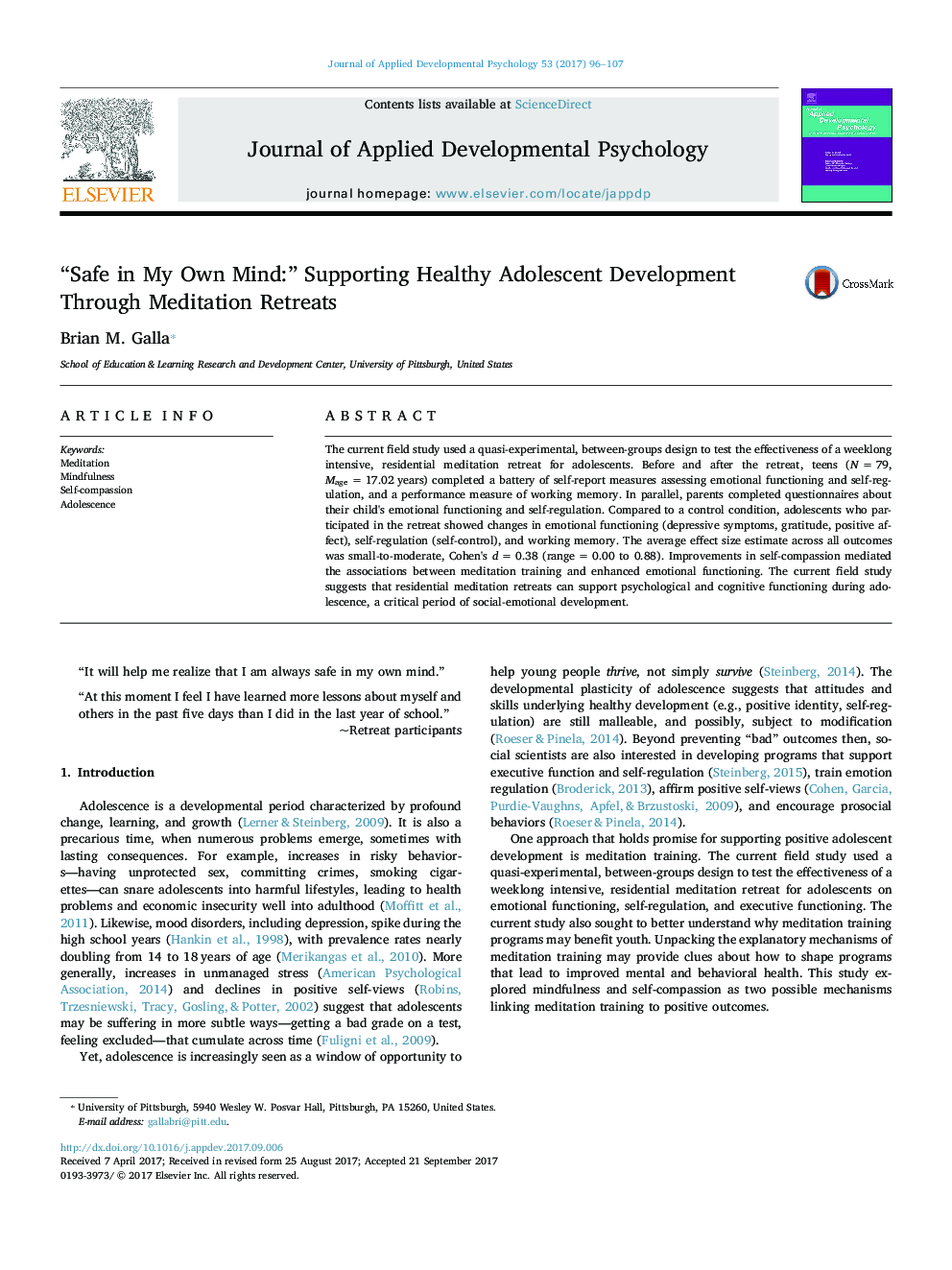| Article ID | Journal | Published Year | Pages | File Type |
|---|---|---|---|---|
| 4939102 | Journal of Applied Developmental Psychology | 2017 | 12 Pages |
Abstract
The current field study used a quasi-experimental, between-groups design to test the effectiveness of a weeklong intensive, residential meditation retreat for adolescents. Before and after the retreat, teens (N = 79, Mage = 17.02 years) completed a battery of self-report measures assessing emotional functioning and self-regulation, and a performance measure of working memory. In parallel, parents completed questionnaires about their child's emotional functioning and self-regulation. Compared to a control condition, adolescents who participated in the retreat showed changes in emotional functioning (depressive symptoms, gratitude, positive affect), self-regulation (self-control), and working memory. The average effect size estimate across all outcomes was small-to-moderate, Cohen's d = 0.38 (range = 0.00 to 0.88). Improvements in self-compassion mediated the associations between meditation training and enhanced emotional functioning. The current field study suggests that residential meditation retreats can support psychological and cognitive functioning during adolescence, a critical period of social-emotional development.
Related Topics
Social Sciences and Humanities
Psychology
Applied Psychology
Authors
Brian M. Galla,
